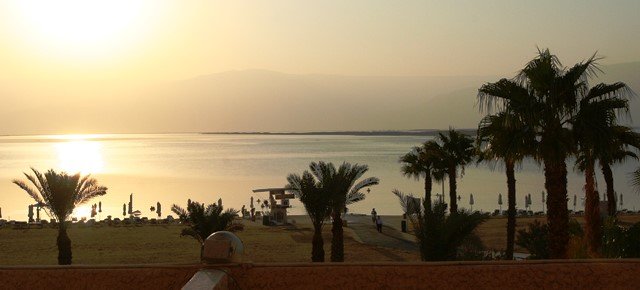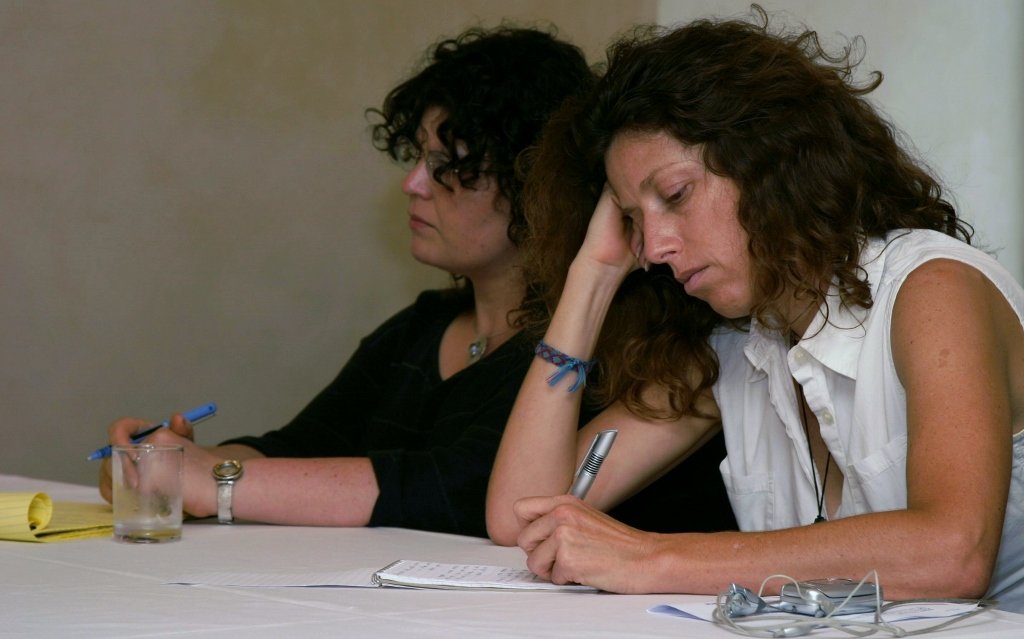Share This Story, Choose Your Platform!
What is he? A dangerous political “Rambo” or an innovative political realist?
Portrait of Israel’s Foreign Minister Avigdor Lieberman
With labels like “anti-Arab demagogue”, “evil neo-fascist”, “extradited gangster”, “chief of racists” or “ultra-nationalist enemy of peace”, the international press vie with each other in their search for and invention of juicy nick-names for Netanyahu’s Foreign Minister. A short browse through the internet reveals that he behaves “like a bull in a china shop” and that he’s a “disgrace for Israel”. What Jean-Marie Le Pen is for France, Vladimir Shirinowski for Russia and Jörg Haider for Austria, Lieberman is reportedly for Israel. The left-wing extremist Uri Avnery, highly respected in Germany, goes so far as to say that Lieberman is “a lot worse than Le Pen and Haider.” Some are afraid that ethnic cleansing will return to Israel’s agenda. The only thing which hasn’t been suggested is changing his name from “Lieberman” (“friendly man”) to “Böserman” (“evil man”), although that’s exactly what he his: the latest boo-man on the international political stage, the scape-goat which the world apparently can’t do without.
Who is Avigdor Lieberman? He was born on June 5, 1958, as Evet Lieberman, in Moldavian Kishinev. Today he is proud of being controversial. “I’m controversial because I have new ideas to offer. In my opinion, that’s something postitive!” The biography of this colorful politician is as interesting as his opinions. His parents met in the Siberian Gulag under Stalin’s rule. Because he was a Jew, he wasn’t allowed to study Law at Kiev University in the 1970’s. At the age of 20 he emigrated with his family to Israel. After completing his military service he was able to study International Law at the Hebrew University in Jerusalem. Avigdor Lieberman speaks fluent Romanian, Russian, Hebrew and English and is married to Ella, nee Zipkin. They have 2 daughters and a son and have been living in Nokdim, an Israeli settlement in the Judaean hill country near Bethlehem, since 1988.
Since stepping into Israel’s political arena in the 1990’s, Lieberman has manouevred himself into a position of power in the Jewish State. In 1988 he began working together with Benjamin Netanyahu, from 1993 to 1996 he was Chief Executive of the Likud Party, and from 1996 to 1997, Director-General of the Prime Minister’s office. In 1999 he founded the “Israel Beiteinu” Party which, translated, means “Israel, our House” or “Israel, our Homeland” and which has adopted the concerns of the emigrants from the Soviet Union. In the same year, Avigdor Lieberman was also voted into the Knesset. Ten years later, Israel Beiteinu is the third strongest power in the Israeli Parlament, and a decisive factor in government formation. Lieberman has headed up a number of government departments as a minister in the course of the past decade: for example, the Department of Infrastructure (2001-2002), of Transport (2003-2004), and the Department of Strategic Affairs (2006-2007). Under Benjamin Netanyahu he is now Foreign Minister and Deputy Prime Minister, the face of the Jewish State for the world outside.
It is inevitable that Avigdor Lieberman evokes mistrust in the average, docile West European citizen – if nothing else, because of his strong Russian accent, which he neither wishes to or is able to conceal. There are police investigations going on against the new Israeli Foreign Minister on suspicions of corruption, fraud, money laundering and perfidy. But this apparently has as little to do with the antipathy against him as do the stories that he used to work as a bouncer at a night club or that he beat up a boy from his neighborhood. Lieberman has a way of expressing himself in “boulevard” language, without any in-between shades – in other words, he gets to the point in a way the simple folk on the streets can understand. He makes headlines with impressively simple analyses, with meaty expressions, drastic directives and pragmatic solutions.
When Ariel Sharon released 350 Palestinian prisoners in the summer of 2003, he suggested that it would be better to “drown them in the Dead Sea, as that’s the deepest point on the planet.” He added, speaking to the Israeli Army Radio Station Galei Zahal, that he would be willing, perfectly unburocratically, to provide buses for the transport of the prisoners. In Israel, Lieberman’s comment was seen as a reference to the security risk which Sharon’s gesture towards the Palestinians would entail. Outside of Israel, his proposal was judged as displaying undisguised racial hatred.
When the helplessness and perplexity of the Israeli government about how to proceed became only too obvious some years later, Lieberman suggested that they focus their attention on the Hamas leadership and simply ignore Palestinian President Mahmoud Abbas, who was largely irrelevant. The Palestinians didn’t want their own State anyway, insisted Lieberman, they only wanted the annihilation of the Jewish State of Israel. And when in January 2009 there was a pervading fear that the Israeli army could find itself grounded in the sand dunes of the Gaza Strip, the latter drenched in extremism and bombs, Lieberman came up with the idea that Israel should “come against Hamas like the Americans against the Japanese in the Second World War”. After that, occupation would no longer be needed. Media spokespeople interpreted this comment to be a hint at Hiroshima and Nagasaki, in other words, as endorsement of an Israeli atomic strike on Gaza.
The Israeli Foreign Minister can be found in full “racist” mode when ruminating on the future of the land between the Jordan and the Mediterranean. You see, he wants two states, one for each of the two conflicting nations. A State of Israel for the Jewish people, and a state for the Palestinians. He explicitly recommends the so-called “Roadmap” – the “path to a permanent two-state solution in the Israeli-Palestinian conflict”, which was proposed in the Fall of 2002 by the “Quartett” USA, EU, UNO and Russia – as a binding legal basis for his government.
Avigdor Lieberman the settler is even prepared to give up his home in Nokdim – but in exchange for that, he insists on a tangible trade-off from the Arab side. The unilateral concessions of previous Israeli governments, in his opinion, have achieved nothing. It’s time for a fresh wind to blow. The world – and above all, the Arab part of it – must understand that “the other side” too must carry responsibility. Lieberman demands that Israeli Foreign Policy should at last represent the interests of Israel and not some ivory-tower ideological specifications coming from the fantasy-land of Western thought.
Avigdor has no time for stereotyped formulas such as “land for peace”, which, with wanton negligence, oversimplify the Middle East Conflict, and recklessly ignore the true roots of the tensions. He criticizes the “peace industry” which has nothing to show for itself but conferences in luxury hotels and a waste of money. You can’t really tell whether Lieberman is pulling the leg of the West or of past Israeli governments to which he himself belonged when, with his Russian chess expression (or how else can you describe the American poker-face air about him?) he declares, “even if we repeat the word ‘peace’ twenty times in one day, that won’t bring us a single step nearer to peace!”
With his
innovative proposals Lieberman is distinguishing himself as a fear-inspiring
specter for all those who cling to certain pet requirements for the Middle East
conflict. He wants to discuss the possibility of keeping the large settlement
blocks in the hands of the State of Israel – and he’s prepared, as
compensation, to hand over land which belonged to the Jewish State as far back
as before 1967, to a future Palestinian state.
With this proposal he positions himself de facto on the left of the left-wing
spectrum in the Israeli Parlament. In this way, he believes, the vociferous
representatives of the Islamic movement in Israel, in Wadi Ara, for example,
could realize their dream of life in an Arab-Islamic State of Palestine without
stirring up existential fears among the Jews.
Interestingly enough, Israeli Arabs who so far have openly identified themselves as Hamas or Hisbolla sympathizers, are suddenly accusing Israel, the occupying force, of being racist. And that’s despite the fact that Lieberman, in defiance of rumors to the contrary, doesn’t plan to transfer either population or land, but simply wants to move the borders of the Jewish State of Israel. Arab citizens in Israel, who complain about being second-class citizens, would, with this plan, have the chance to be promoted to first-class citizens in a prospective Arab Palestine. By the way, when Arab Israelis on the Lebanese border in Ghajar are transferred, complete with their property, to Lebanon, because the UNO has discovered that their land lies north of the Blue Line, or when the Syrian President demands that Arab Israelis on the Golan Heights be transferred to Syria, no-one calls that racist.
For many representatives of the right-wing spectrum of Israeli society too, Avigdor Lieberman is, however, something of a suspect entity. They can’t understand how you can characterize as “right-wing” or “nationalistic” somebody who puts Israel’s territory on this side of the Green Line up for debate. As if that’s not serious enough, Lieberman the Russian is attacking even more holy cows in the traditional Israeli establishment. German cars are actually tabu for Israeli politicians, for historical reasons. For the first time in history, a black Mercedes is parked in its capacity as “official car” in front of the Foreign Office in Jerusalem. And when Lieberman presents himself as an enthusiastic fan of the solid limousines from Stuttgart, he exudes the air of a Russian mafiosi or Arab warlord rather than the offspring of Eastern European Jews fresh from the ghettos.
Rabbi Ovadia Josef, spiritual leader of the ultra-orthodox sephardic Jews and their Shass Party, characterized Lieberman in the election as “Amalek”. “Amalek” in the Bible is the nation which invested its whole existence in the destruction of the people of Israel and was subsequently itself destroyed (Exodus 17;14-15, Deutoronomy 25;17-19). The background of Josef’s invective is Lieberman’s image as a the archetypal pork-eating Russian. With his demand for the introduction of civil marriage, he is chipping away at Rabbinic supremacy in matters of family law. If a person doesn’t have an immaculate ancestry to show for, or their religion is questionable, Israel’s Rabbis can refuse him or her marriage. The out-and-out racist Lieberman, of all people – as far as the orthodox are concerned – opens the door wide for assimilation and subsequent annihilation of the Jewish national character.
There are apparently people in Israel who simply can’t understand what is so obvious from the Western point of view: that Lieberman and his party are racist. Take for example the Druse Hamad Amar from the Galilean township Shefaram. This Israeli Arab has a seat as a Member of Parlament of the Israel Beiteinu Party in the Knesset, and many of his non-Jewish compatriats who have Israeli passports vote for Lieberman’s party. Don’t these people have a clue about Lieberman’s radical views? Or could it be that the portrayal of the politician as “right-wing radical” has its origin in stereo-typed slogans rather than in reality?
Lieberman has characterized nuclear Iran as the “most serious threat for the Jewish people since World War II”, but has spoken unequivocally and unapologetically against a military strike on Israel’s part against Iran, “even if sanctions fail.” Not only has he for ages now been propogating a Palestinian State, but he’s also been lobbying for Israel’s membership in the EU and NATO. Avigdor Lieberman is open for talks with Syria, albeit without any pre-conditions.
The chairman of the Israel Beiteinu Party hit the headlines when he hinted that Israel could bomb the Asswan resevoir in the case of a military conflict with Egypt. His appallingly bad relationship with Egyptian President Hosni Mubarak is legendary. And yet in his inauguration speech as Foreign Minister he praised Egypt as a stabilizing factor and a few weeks later he had one of his first visits by the powerful Egyptian Secret Services Minister, Omar Suleiman. This isn’t necessarily a sign that the powerbrokers of the land on the Nile find Avigdor Lieberman particularly nice. But he’s important enough to be heard and truly understood.
Translation by Nicola Vollkommer






















